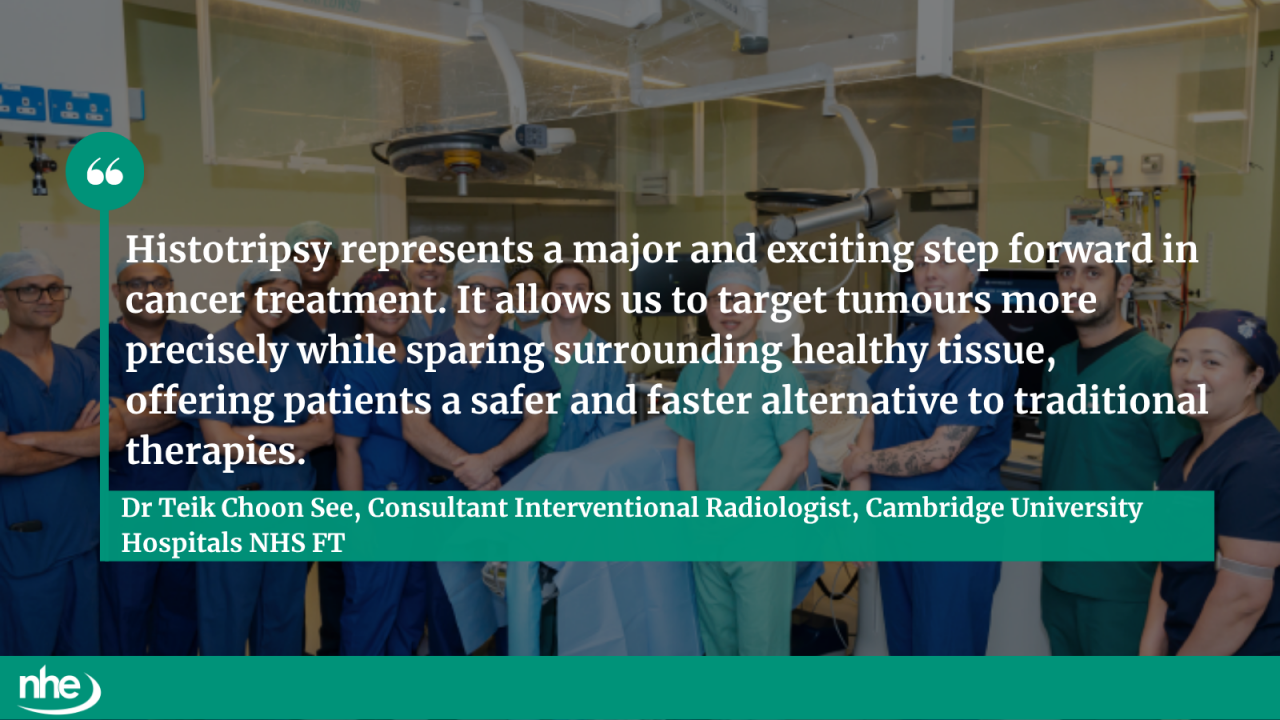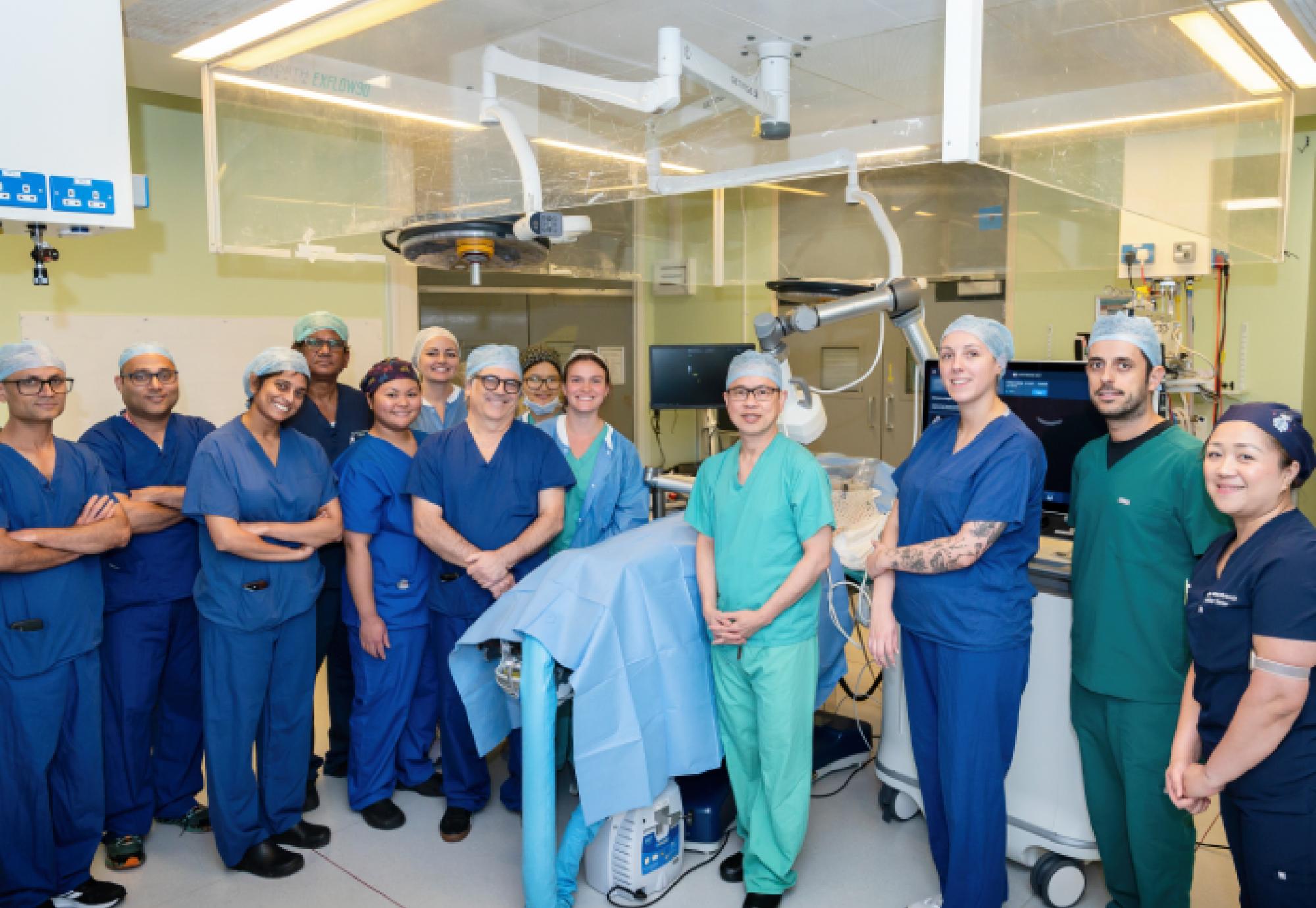In a landmark moment for cancer care, Cambridge University Hospitals NHS Foundation Trust has become the first hospital in Europe to deliver histotripsy treatment to a patient outside of a clinical trial, following fast-track authorisation by the UK government.
The pioneering procedure, performed at Addenbrooke’s Hospital, uses focused ultrasound energy to destroy liver tumours without surgery, radiation, or chemotherapy. The treatment was administered to Roger Jackson, a patient from Bedford, who was discharged the following day and is now recovering at home.
Histotripsy works by generating microscopic “bubble clouds” from naturally occurring gases in tumour tissue. These bubbles collapse in microseconds, creating mechanical forces that destroy cancer cells. The treatment is incisionless, typically pain-free, and can be completed in as little as 30 minutes, allowing for day-case recovery.
The installation of the Edison Histotripsy System at Addenbrooke’s was made possible by a donation from the Li Ka Shing Foundation, a long-time supporter of cancer research in Cambridge. The technology, developed by HistoSonics, has already treated over 2,000 patients globally following FDA clearance in the US for liver tumour destruction.
Consultant Interventional Radiologist at CUH, Dr Teik Choon See, commented:
“Histotripsy represents a major and exciting step forward in cancer treatment. It allows us to target tumours more precisely while sparing surrounding healthy tissue, offering patients a safer and faster alternative to traditional therapies.
“What is even more promising is in some reported cases, after the sound waves break apart the tumour, the patient’s immune response may become activated and clear up some remaining cancerous tissues, showing real hope for patients.”

Roger Jackson’s treatment marks the first use of histotripsy under the UK’s Innovative Devices Access Pathway (IDAP), overseen by the Medicines and Healthcare products Regulatory Agency (MHRA). The device was granted Unmet Clinical Need Authorisation (UCNA), allowing early access prior to full regulatory approval.
With initial funding from Addenbrooke’s Charitable Trust, the treatment is currently offered to selected patients with primary and secondary liver cancers. The National Institute for Health and Care Research is exploring funding for further research into its clinical and cost-effectiveness, with studies underway to assess its potential for other cancer types.
This breakthrough highlights the NHS’s commitment to cutting-edge innovation, offering patients access to life-changing treatments years ahead of traditional timelines.
Image credit: Cambridge University Hospitals NHS FT



















